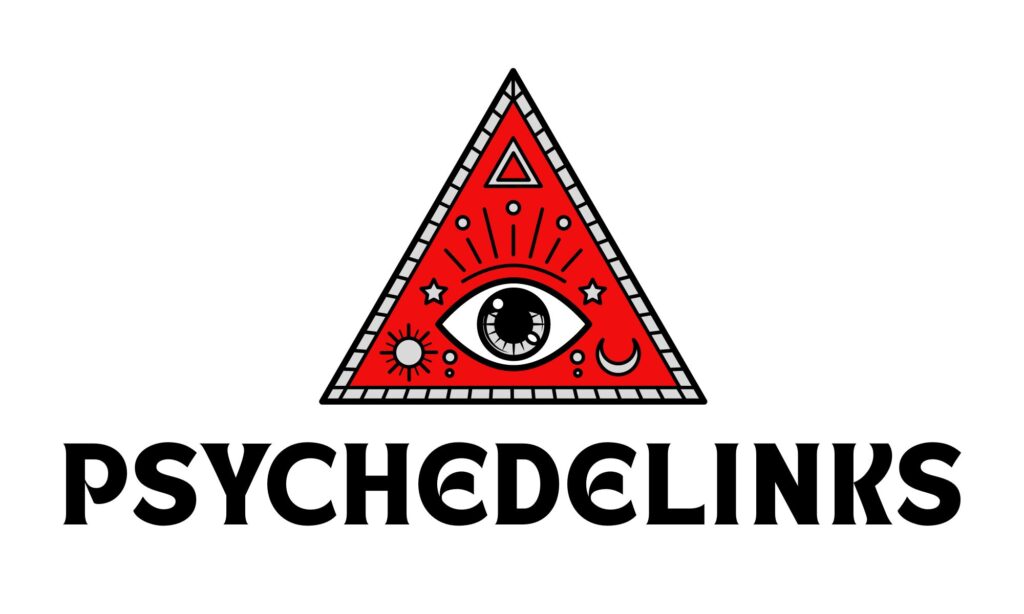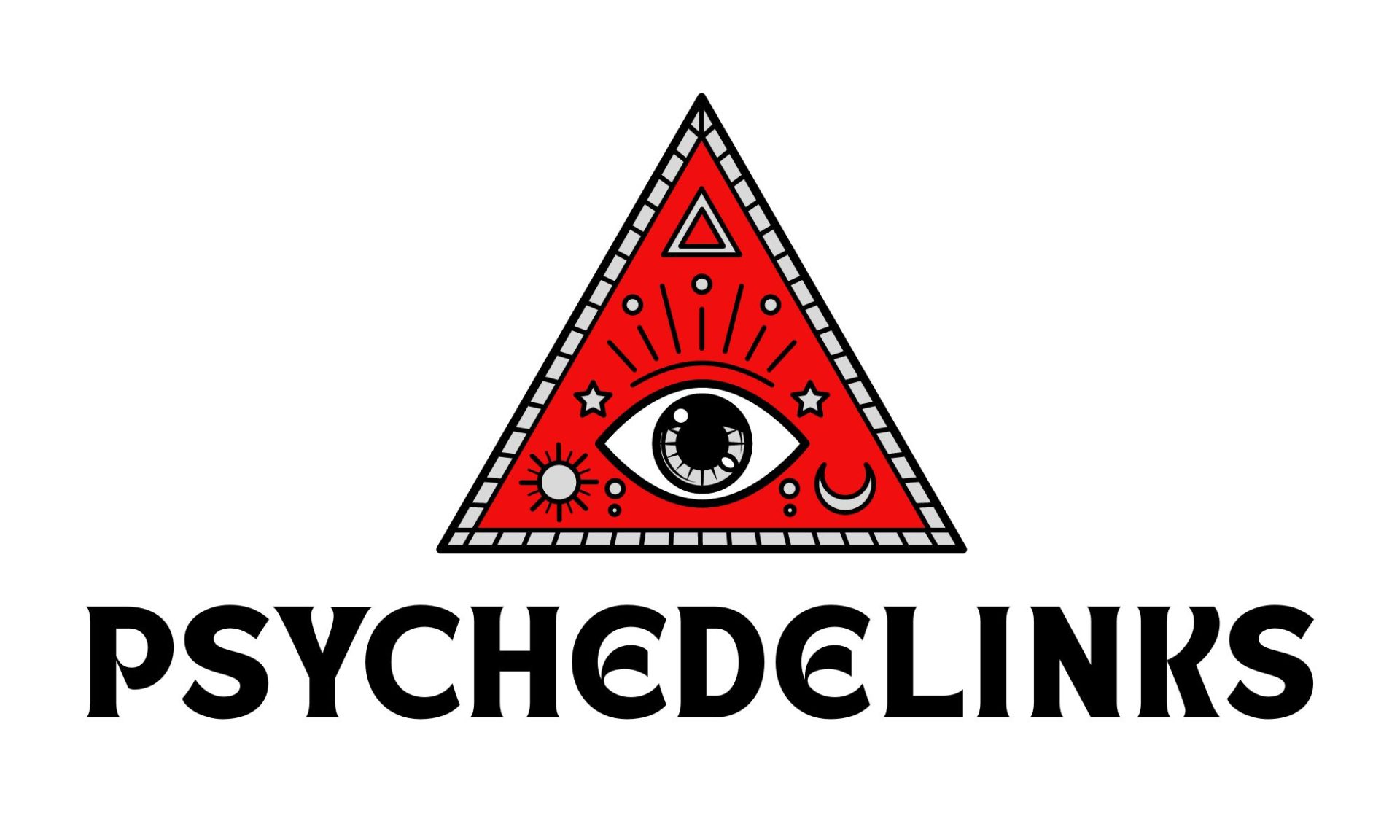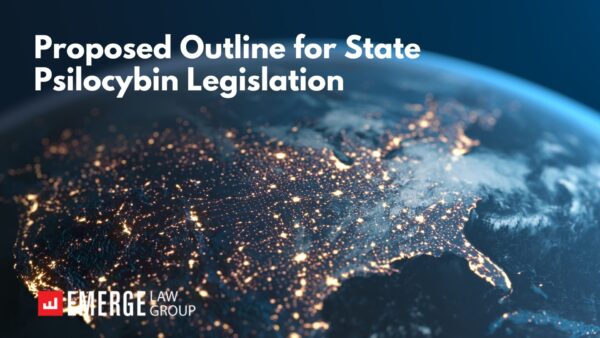PsychedeLinks is a curated selection of top news stories impacting business, research, and culture in the psychedelics ecosystem, crafted by Emerge Law Group’s groundbreaking Psychedelics Group.
Emerge’s Hot Take
Oregon Closer to Magic Mushroom Therapy, But Has Setback
Last week, more than 100 future Oregon facilitators graduated from InnerTrek’s psilocybin facilitator training program. Congrats to those students! Soon enough those facilitators will be licensed by the Oregon Health Authority (OHA) and ready to provide psilocybin services to clients. But without any currently licensed OHA services centers or manufacturers, there are no clients for facilitators to guide and no psilocybin products to administer. It’s a classic chicken and egg scenario. It isn’t clear yet how many service centers will be licensed and operational by the end of the year and many facilitators may be without a job for longer than initially anticipated. “The service center to facilitator ratio may be out of whack for quite some time. So, facilitators will be forced to wait it out, apply for service center licenses of their own to address the bottleneck, or maybe even turn (or return) to the underground,” says Emerge attorney Kaci Hohmann.
Other Noteworthy News
Psychedelics Could Revolutionize Couples Therapy
“Proponents of psychedelic use expect the U.S. Food and Drug Administration (FDA) to approve MDMA as a treatment for post-traumatic stress disorder (PTSD) within the next two years. If that happens, it could potentially open the door to other therapeutic uses of the drug—possibly including couples therapy. Research on MDMA in couples therapy is limited, but the practice has a long history. Some therapists legally used MDMA in couples counseling in the 1970s and 1980s. Effective as they can be, though, experts say it’s a mistake to think that psychedelics offer a one-way ticket to marital bliss.”
Vermont Legislators File Four Bills that Would Legalize Psychedelics and Decriminalize All Drugs
“Four major drug reform bills have been introduced in the Vermont State Legislature to decriminalize simple possession of all drugs, expand harm reduction services, remove criminal penalties for using and selling psilocybin and decriminalize certain psychedelic plants and fungi. Nearly a third of their 150-member House of Representatives have co-sponsored H.423, an all-drug decriminalization legislation sponsored by Reps. Logan Nicoll (D) and Taylor Small (P/D). Rep. Vyhovsky (P/D) has joined forces with ten other senators on the S.119 companion bill, making Vermont on its way to becoming the promised psychedelics land. H.439, sponsored by Rep. Brian Cina (P/D), would completely decriminalize psilocybin, mescaline and peyote in Vermont by removing them from Vermont's definition of hallucinogenic drugs. S.114 ,the other proposed bill by Sen. Martine Gulick (D) would not only remove the famed psilocybin mushroom from Vermont's drug classification, but also take an entire step above her colleague's effort to create a working group dedicated to studying the potential physical and mental health benefits of these substances. The specific psilocybin bill has been assigned to the Senate Health and Welfare Committee for deliberation, while all other related bills have been referred to their respective chamber's judiciary committee.”
Washington Senate Approves Scaled-Down Psilocybin Bill to Prepare State for Future Psychedelic Services
“The Washington State Senate has approved a bill to create a task force promoting research into psilocybin and developing a pathway for legal access to the psychedelic.
The legislation from Sen. Jesse Salomon (D)—which was effectively gutted in an earlier Senate committee to exclude original regulated access provisions—cleared the full chamber in a 41-7 vote on Tuesday. It now heads to the House. Senate Democrats cheered the passage, but advocates remain disappointed about the extent to which the bill was watered down in committee. That 81-page bill was reduced to an eight-page bill mandating the formation of a task force to explore regulatory pathways for the psychedelic in the future. It’s possible, of course, that House lawmakers may seek to further amend it in their chamber.”
The legislation from Sen. Jesse Salomon (D)—which was effectively gutted in an earlier Senate committee to exclude original regulated access provisions—cleared the full chamber in a 41-7 vote on Tuesday. It now heads to the House. Senate Democrats cheered the passage, but advocates remain disappointed about the extent to which the bill was watered down in committee. That 81-page bill was reduced to an eight-page bill mandating the formation of a task force to explore regulatory pathways for the psychedelic in the future. It’s possible, of course, that House lawmakers may seek to further amend it in their chamber.”
Colorado’s Proposition 122: Too Soon for the Mushroom Boom?
“Is Colorado's passage of Prop. 122 a bridge too far for federal law enforcement? We have yet to see what the federal government's enforcement position will be with regard to legalizing magic mushrooms, much less DMT or Mescaline. Will the Department of Justice sit back and allow states to continue to legalize other Schedule 1 Controlled Substances without some federal interference? Alternatively, will Merrick Garland's Department of Justice issue a "mushroom memorandum" akin to the now-rescinded Cole Memorandum of 2013 for cannabis? As they say, history is often bound to be repeated. While Psilocybin may have a faster federal legalization trajectory than cannabis has, Colorado is wise to create a robust regulatory framework to stave off possible federal enforcement of the Controlled Substances Act. Industry participants need to understand the potential risks, and armed with a hefty dose of risk tolerance, seriously address compliance with state law. Is it too soon for a mushroom boom? We will have to wait and see.”
Vancouver Company Inks MDMA and Psilocybin Distribution Agreement in Australia
“Vancouver-based drug manufacturer and formulator Optimi Health has signed a distribution agreement to supply the Australian market with its MDMA formulation and psilocybin capsules. The products will be exported to Australia by July 1, 2023, when authorized psychiatrists can begin prescribing MDMA and psilocybin for specific mental health conditions. The distribution agreement is with Mind Medicine Australia (MMA), a leading charitable organization and patient advocacy group seeking to expand access to legal psychedelic-assisted therapies, and marks Optimi Health’s first international MDMA and psilocybin sale. All products destined for the Australian market will be manufactured, encapsulated and packaged inside Optimi’s facility under GMP-compliant protocols, and will follow Health Canada’s controlled substances export laws. To provide equitable access to its products, Optimi will allocate a percentage of product sales towards a fund managed by MMA to assist low-income earners and others who face systemic barriers to access, with those details to be announced in the coming weeks.”
Subscribe
Subscribe to PsychedeLinks to receive essential biweekly articles on news, business, and culture in the psychedelics industry, delivered straight to your inbox.




